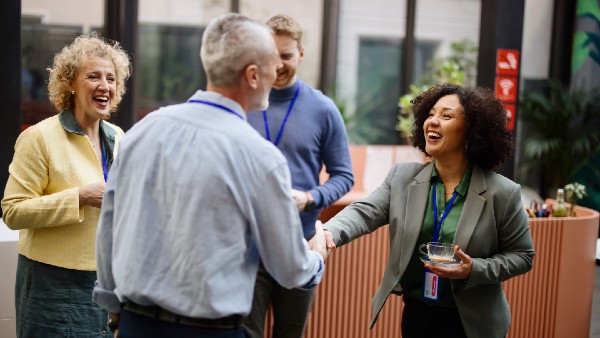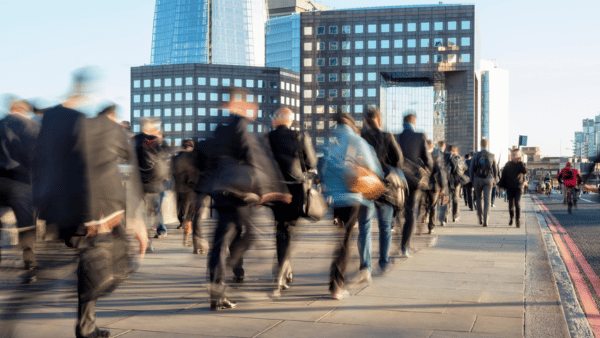RSA calls for stronger welfare net to curb virus spread.
Millions of British workers are putting themselves and others at risk of Covid-19 due to inadequate sick pay and pressure from their employers, new research shows.
The RSA (royal society for arts, manufactures and commerce) warns that a growing 'economic security trap' — the choice workers face between protecting their income and their health — is contributing significantly to the spread of the virus.
Polling carried out between 13 Jan and 15 Jan by Yonder (formerly Populus) of UK workers finds:
- around one-in-25 (4%) British workers has worked within 10 days of a positive test, rising to one-in-ten (10%) of those in insecure work such as a zero-hours contract, agency work or the gig economy
- 6% of British workers have worked with Covid-19 symptoms, rising to 8% of insecure workers and 13% of the self-employed
- 12% have been ordered into work when they could have easily and more safely worked from home
- only 16% think Statutory Sick Pay is sufficient to meet their needs.
The RSA calls for an emergency package to address economic insecurity, including:
- allowing workers who have to self-isolate to access the furlough scheme, meaning statutory sick cover can be provided at 80% of an employee's wages.
- retaining the £20 per week uplift paid to recipients of Universal Credit
- introducing a 'basic income' style scheme for the self-employed, paid to all those registered with HMRC
Recent RSA research on key workers has found that many staff in key industries report struggling to take time off when unwell, including 29% of those working in social care.
The RSA has a long-running programme of research dedicated to tackling economic insecurity in the UK. Last year the organisation published A Blueprint for Good Work, putting forward practical solutions for providing good work after the pandemic.
Alan Lockey, head of RSA’s future work programme, said:
"Our polling shows that millions feel forced to put themselves and others at risk of the virus because of insecure work, pressure from bosses, and the failings of our deeply inadequate welfare state."
"Rishi Sunak must close this 'economic security trap' — the terrible trade-off many workers face between their health and putting food on the table — by allowing self-isolating workers to access the furlough scheme, and retaining the £20 per week uplift in universal credit."
"We also need to see help for the millions currently excluded, through no fault of their own - and the self-employed in particular. An 'emergency basic income' style scheme, using the current tax infrastructure, is the best way to help reach all this group and close the gaps which we believe are helping to increase the infection rate."
ENDS
Contact:
Ash Singleton, RSA Head of Media and Communications, ash.singleton@rsa.org.uk, 07799 737 970.
Notes:
- The RSA (from August 2020, the royal society for arts, manufactures and commerce) is an independent charity, committed to a future that works for everyone. A future where we can all participate in its creation.
- The RSA has been at the forefront of significant social impact for over 260 years. Our proven change process, rigorous research, innovative ideas platform and diverse global community of more than 30,000 problem solvers, deliver solutions for lasting change.
- Legally, the Royal Society for the Encouragement of Arts, Manufactures and Commerce (‘RSA’) is a Royal Charter Company and registered charity in England and Wales (charity number 212424) and in Scotland (charity number SC037784)
Related articles
-
Introducing the Fellowship Promotion Guide
Fellowship news
Fionna Monk
Our brand-new Fellowship Promotion Guide is a powerful new resource designed to make it easier than ever for current Fellows and staff to share the value of the RSA Fellowship with others.
-
Why 2025 is an exciting year to be an RSA Fellow
Fellowship news
Fionna Monk
Happy New Year! 2025 is shaping up to be a landmark year for the RSA Fellowship, brimming with new opportunities, initiatives, and global collaborations. There’s never been a more exciting time to be part of this dynamic and engaging community. Here’s more on why this year promises to be an inspiring and impactful year for RSA Fellows worldwide.
-
Counting the cost of bowling alone
Blog
Andy Haldane
In his 2025 CEO Lecture, Andy Haldane addresses how the ever-increasing cross-border flows of goods, people and information affect widening divisions and accelerate the depletion of social capital.


